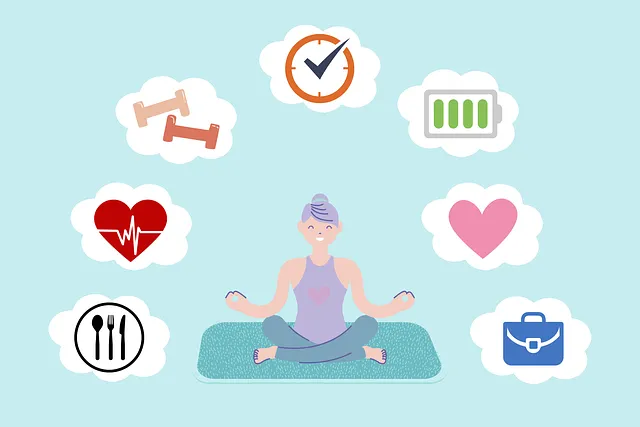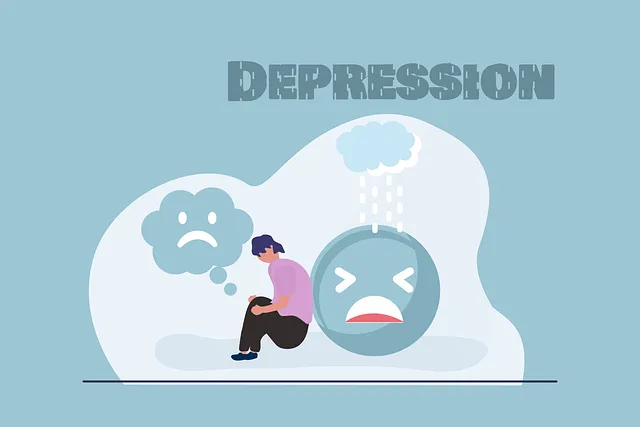Kaiser Permanente Mental Health Facility in Westminster uses Positive Thinking Exercises (PTEs) to promote mental wellness and personal growth, employing methods like guided meditations, affirmations, and cognitive-behavioral strategies tailored to individual needs. These exercises, integrated into programs like Social Skills Training and Self-Esteem Improvement, reduce anxiety, depression, and stress while empowering patients to lead happier lives. The facility engages in community outreach, collaborating with schools and organizations to offer workshops on stress reduction and confidence-boosting strategies, reinforcing positive thinking practices beyond clinical settings. Through tailored sessions in a supportive environment, Kaiser Permanente Westminster assesses success through mood tracking and self-care evaluations, ensuring effective programs for long-term mental well-being.
At the Kaiser Permanente Mental Health Facility in Westminster, positive thinking exercises have emerged as a powerful tool for enhancing therapeutic outcomes. This article explores the benefits and strategies behind implementing these practices within clinical settings, focusing on techniques that engage patients and foster resilience. Discover how tailored exercises can revolutionize therapy sessions, leading to improved mental health and well-being. Learn about overcoming challenges and measuring success in integrating positive thinking into Kaiser Permanente’s holistic approach to patient care.
- Understanding Positive Thinking Exercises at Kaiser Permanente Mental Health Facility, Westminster
- Benefits of Incorporating Positive Thinking in Therapy Sessions
- Strategies for Effective Implementation within a Clinical Setting
- Overcoming Challenges and Ensuring Patient Engagement
- Measuring Success: Evaluating the Impact of Positive Thinking Exercises
Understanding Positive Thinking Exercises at Kaiser Permanente Mental Health Facility, Westminster

At Kaiser Permanente Mental Health Facility in Westminster, Positive Thinking Exercises (PTEs) are integral to fostering mental wellness and personal growth. These exercises go beyond traditional therapy by focusing on reframing negative thoughts into positive ones, thereby enhancing emotional regulation skills among patients. The facility’s dedicated team incorporates various PTE techniques tailored to individual needs, from guided meditations and affirmations to cognitive-behavioral strategies.
Through these initiatives, Kaiser Permanente Westminster not only supports patients in managing their mental health but also empowers them with long-lasting empathy building strategies. The Mental Wellness Coaching Programs Development at the facility encourages active participation, enabling individuals to develop emotional resilience and cultivate a positive mindset. This holistic approach aligns with the broader mission of enhancing overall well-being within the community.
Benefits of Incorporating Positive Thinking in Therapy Sessions

Incorporating positive thinking into therapy sessions at Kaiser Permanente mental health facility Westminster offers a multitude of benefits for both patients and therapists. By fostering an optimistic mindset, individuals can experience enhanced emotional well-being, improved coping mechanisms, and increased resilience to stress. Positive thinking exercises, such as reframing negative thoughts, practicing gratitude, and engaging in mindfulness meditation, have been shown to significantly reduce symptoms associated with anxiety, depression, and other mental health conditions.
At Kaiser Permanente Westminster, these techniques can be integrated into Social Skills Training and Self-Esteem Improvement programs, providing a holistic approach to therapy. Mindfulness Meditation, for instance, helps individuals cultivate present-moment awareness, allowing them to better manage impulsive behaviors and emotions. By combining positive thinking with evidence-based practices, the mental health facility aims to empower patients to lead happier, more fulfilling lives while promoting overall mental wellness in a supportive environment.
Strategies for Effective Implementation within a Clinical Setting

At a Kaiser Permanente mental health facility in Westminster, implementing positive thinking exercises requires a strategic approach tailored to the clinical setting. One effective strategy involves incorporating these practices into existing therapy sessions, ensuring they complement evidence-based treatments like cognitive behavioral therapy (CBT). By integrating positive thinking techniques, such as mindfulness meditation and gratitude journaling, therapists can enhance patient engagement and foster a sense of empowerment.
Moreover, community outreach programs play a vital role in promoting mental well-being on a larger scale. These initiatives can include workshops focused on stress reduction methods and confidence-boosting strategies, targeting both individuals and groups within the local community. By collaborating with schools, workplaces, and other community organizations, the Kaiser Permanente facility in Westminster can increase access to mental health resources and create a supportive network that reinforces positive thinking practices beyond clinical walls.
Overcoming Challenges and Ensuring Patient Engagement

Implementing positive thinking exercises at a Kaiser Permanente mental health facility in Westminster requires careful navigation to overcome challenges and ensure patient engagement. Many patients might initially resist or find it difficult to embrace optimistic perspectives, especially if they’re dealing with severe stressors or burnout. Therefore, tailoring these sessions to meet individual needs is essential. Therapists should foster an open environment where patients feel comfortable expressing their concerns and doubts without fear of judgment. Incorporating techniques like mindfulness meditation and cognitive reframing can help patients gradually develop a more positive outlook while managing their symptoms effectively.
To enhance engagement, the Stress Management Workshops Organization could collaborate with mental health professionals to design sessions relevant to common challenges faced by patients. A comprehensive risk assessment for mental health professionals is crucial to identifying potential triggers and tailoring interventions accordingly. By addressing burnout prevention proactively, these workshops can foster a supportive atmosphere that encourages patients to actively participate in their recovery journey, ultimately enhancing the effectiveness of positive thinking exercises at the Kaiser Permanente facility in Westminster.
Measuring Success: Evaluating the Impact of Positive Thinking Exercises

The success of positive thinking exercises can be evaluated through various metrics, offering valuable insights into their impact on individuals’ mental well-being. At the Kaiser Permanente mental health facility in Westminster, assessments often focus on changes in mood and overall emotional resilience. By regularly tracking participants’ moods before and after these exercises, healthcare professionals can gauge improvements in managing stress and negative emotions. This data is instrumental in understanding the effectiveness of different techniques for specific populations.
Additionally, measuring success involves observing improvements in self-care practices among individuals who consistently engage with positive thinking initiatives. The Community Outreach Program Implementation at Kaiser Permanente has shown promising results, where participants report enhanced coping strategies and a more proactive approach to mental health management. Such evaluations ensure that the facility’s programs remain aligned with current research and best practices, fostering a supportive environment for long-term well-being.
Positive thinking exercises, as implemented at the Kaiser Permanente Mental Health Facility in Westminster, offer a powerful tool for enhancing therapeutic outcomes. By integrating these strategies into clinical settings, therapists can foster patient engagement and promote mental well-being. The benefits are clear: improved mood, increased resilience, and enhanced coping skills. Through careful planning, tailored approaches, and continuous evaluation, healthcare professionals can ensure these exercises effectively support individuals on their journey towards positive mental health.






